[Newsbits] 13.02.2024: Egg Freezing, Floor Test, SWATI POrtal & More

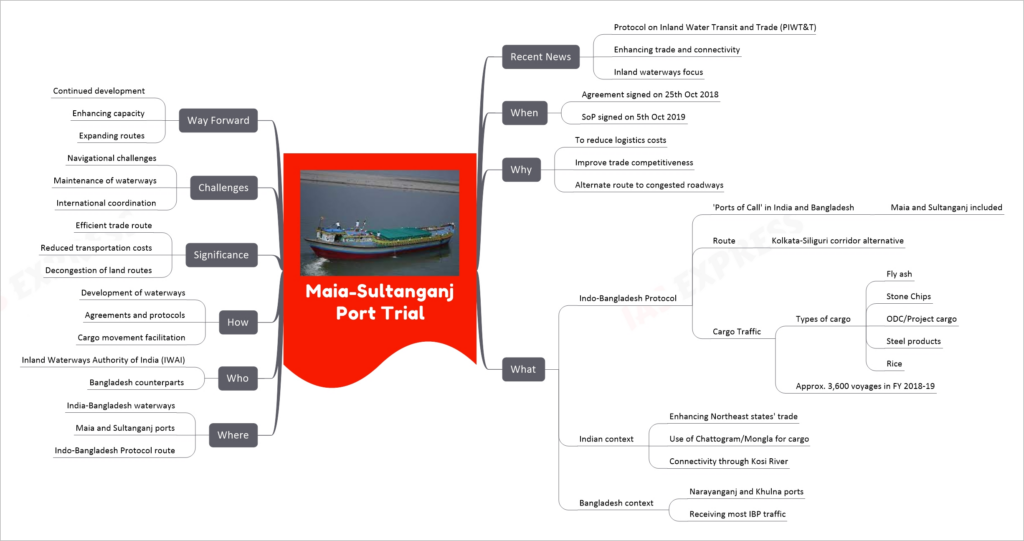
The Maia-Sultanganj Port Trial is a key component of the Protocol on Inland Water Transit and Trade (PIWT&T) between India and Bangladesh, aimed at enhancing trade and connectivity through inland waterways. It involves the development of ‘Ports of Call’ in both countries, including Maia and Sultanganj, to provide an efficient alternative to congested road routes. This initiative is significant for reducing logistics costs and improving trade competitiveness, especially for India’s northeastern states. It represents a collaborative effort in developing waterways and facilitating cargo movement between the two nations.
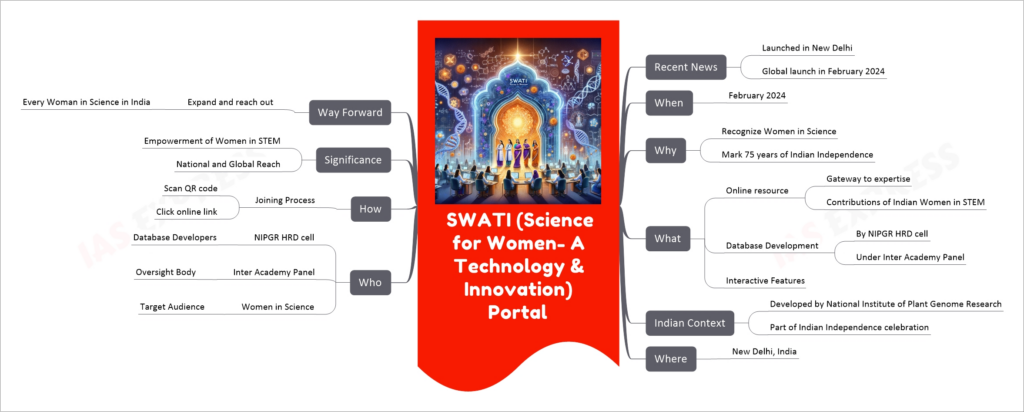
The SWATI Portal, short for Science for Women- A Technology & Innovation, is a significant initiative launched in New Delhi to acknowledge and promote the contributions of women in the fields of Science, Technology, Engineering, Mathematics, and Medicine (STEMM). It was developed under the Inter Academy Panel and by the National Institute of Plant Genome Research (NIPGR) HRD cell, specifically to mark the 75th anniversary of Indian Independence. This interactive online resource serves as a comprehensive database and a gateway to the expertise and accomplishments of Indian women in STEM, aiming to empower them and increase their visibility in these fields. The portal, which will be globally launched in February 2024, is open for registration through a simple process involving a QR code or an online link.
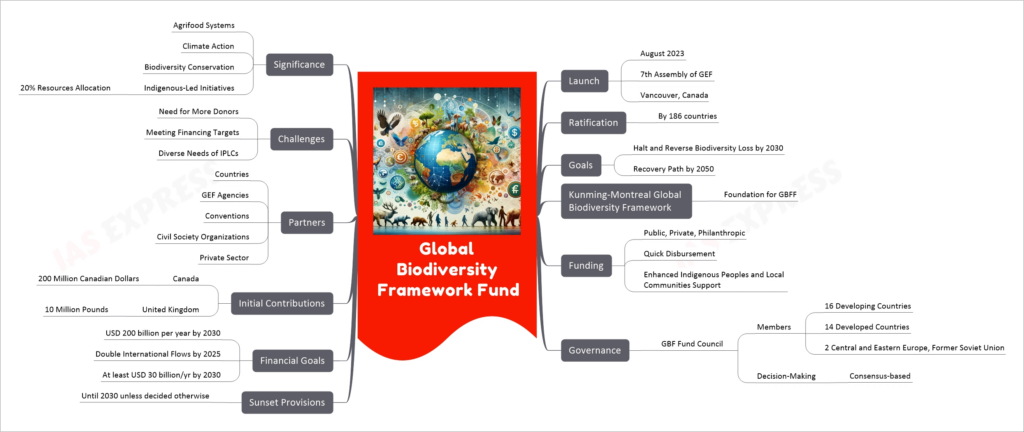
The Global Biodiversity Framework Fund (GBFF), launched in August 2023 at the 7th Assembly of the Global Environment Facility in Vancouver, Canada, represents a significant global initiative to combat biodiversity loss. Ratified by 186 countries, the GBFF aims to halt and reverse biodiversity loss by 2030 and set nature on a recovery path by 2050. Grounded in the Kunming-Montreal Global Biodiversity Framework, it focuses on streamlined funding from public, private, and philanthropic sources, with special attention to Indigenous Peoples and local communities. Governed by a diverse council, it seeks to mobilize USD 200 billion annually by 2030. Despite its ambitious goals, the GBFF faces challenges like securing sufficient funding and addressing the diverse needs of Indigenous Peoples and local communities.
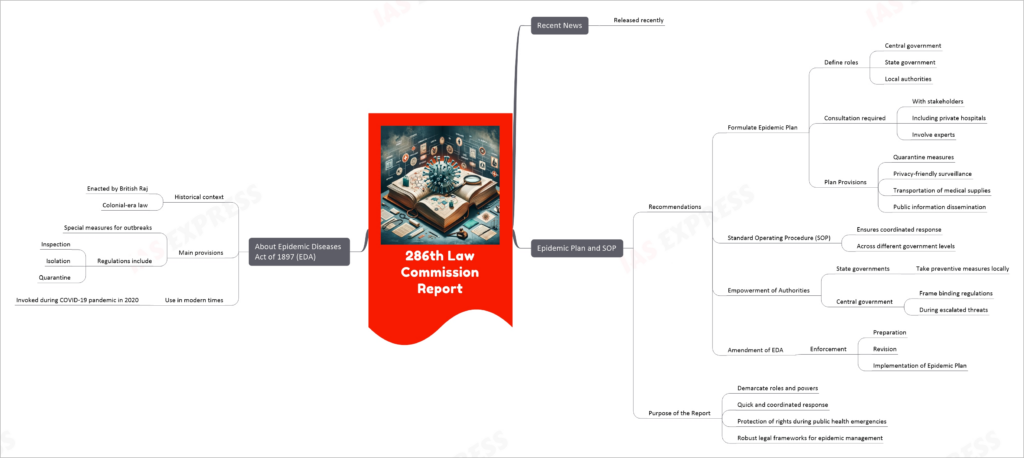
The 286th Law Commission Report emphasizes the need for a comprehensive Epidemic Plan and Standard Operating Procedure (SOP) to effectively address future epidemics. It critiques the limitations of the Epidemic Diseases Act of 1897 (EDA), highlighting its outdatedness and lack of clarity on power division between the central and state governments, leading to uncoordinated epidemic responses. The report’s key recommendations include formulating a detailed Epidemic Plan delineating the roles of central, state, and local authorities, and consulting stakeholders in its drafting. The plan should encompass aspects like quarantine, surveillance, transport of medical supplies, and public information dissemination. An SOP is proposed for a coordinated government response at different levels, with states empowered to act during initial outbreaks and the central government taking over as threats escalate. The report suggests amending the EDA to mandate the preparation, revision, and implementation of the Epidemic Plan. These recommendations aim to establish clear roles and powers for authorities, ensuring quick, coordinated, and rights-protecting responses in future public health crises, highlighting the importance of robust legal frameworks in an interconnected world.
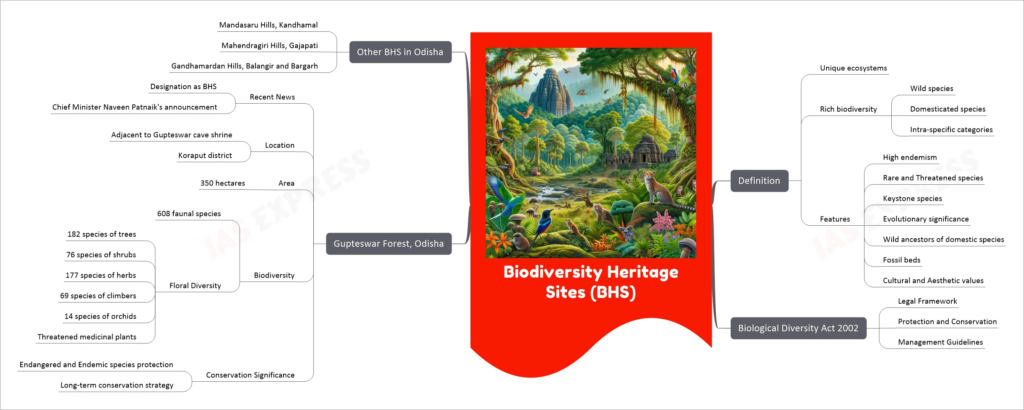
Biodiversity Heritage Sites (BHS) are unique ecosystems characterized by their rich biodiversity, including a variety of wild and domesticated species. Under the Biological Diversity Act 2002, these sites are legally protected and managed for conservation. Recently, the Gupteswar Forest in Odisha’s Koraput district was designated as a BHS, joining other significant sites in the state like the Mandasaru, Mahendragiri, and Gandhamardan Hills. Spread over 350 hectares, Gupteswar Forest is home to 608 faunal species and a wide range of flora, playing a crucial role in the conservation of endangered and endemic species.
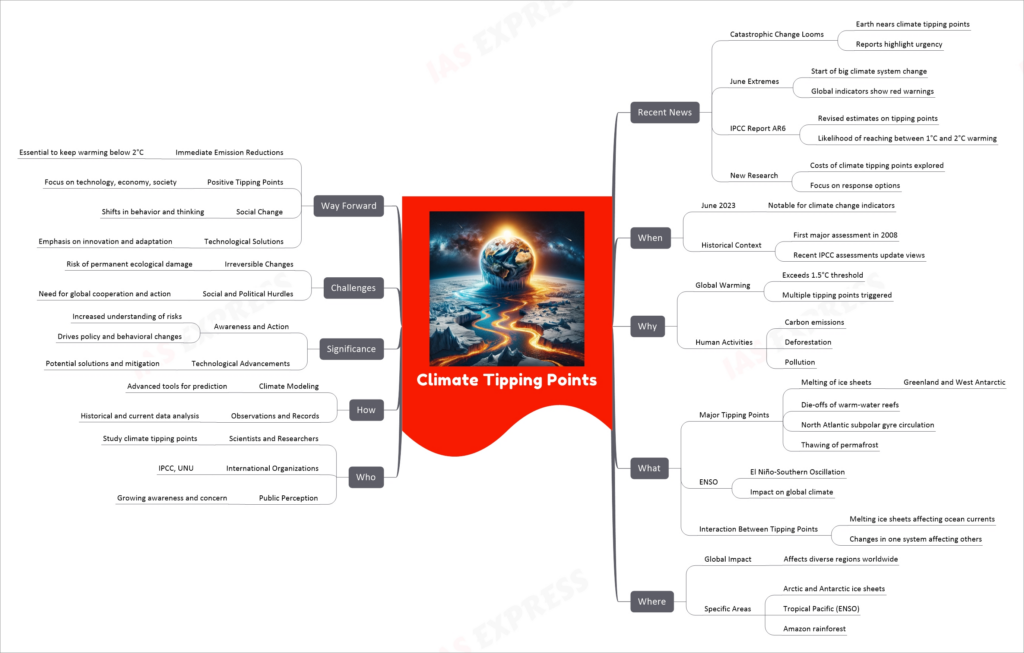
Climate tipping points refer to critical thresholds in the Earth’s climate system, beyond which significant and potentially irreversible changes occur. Recent news highlights an increased likelihood of reaching these points due to global warming exceeding 1.5°C. Key tipping points include the melting of major ice sheets, changes in ocean currents, and the thawing of permafrost. The interaction between different tipping points, like the El Niño-Southern Oscillation (ENSO) and ice sheet melting, can lead to cascading effects. Awareness of these risks is growing among scientists, international organizations, and the public, leading to calls for immediate emission reductions and the exploration of technological solutions and positive social changes to mitigate these effects.

A floor test in a legislature is a procedure used to determine whether the executive (government) enjoys the support of the majority of legislators. It is typically conducted through a vote in the legislative assembly. This mechanism becomes crucial during political crises, such as the recent one in Maharashtra, India, involving factions within the Shiv Sena party. The floor test is intended to uphold democratic values by ensuring that the government has the majority support necessary to govern effectively. It helps prevent political instability and practices like horse trading. The role of the Speaker and the Governor, along with guidelines from the Supreme Court, play a significant role in the process and outcome of a floor test.
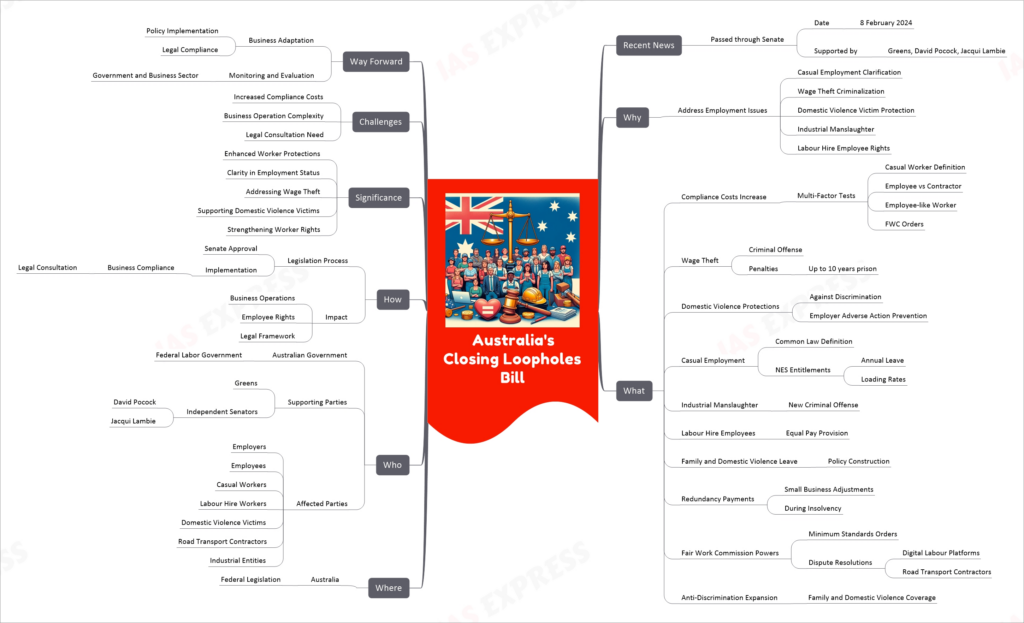
The Closing Loopholes Bill in Australia, passed in February 2024, represents a significant overhaul of the country’s industrial relations framework. The legislation aims to address key employment issues, including clarifying the definition of casual employment, criminalizing wage theft, protecting domestic violence victims, introducing industrial manslaughter as a criminal offense, and ensuring equal pay for labour hire employees. It also expands the jurisdiction of the Fair Work Commission and anti-discrimination provisions. The bill’s passage, supported by the Greens, David Pocock, and Jacqui Lambie, signifies a major shift in Australian employment law, emphasizing enhanced protections for workers and greater clarity in employment status, albeit with increased compliance costs and operational complexities for businesses.
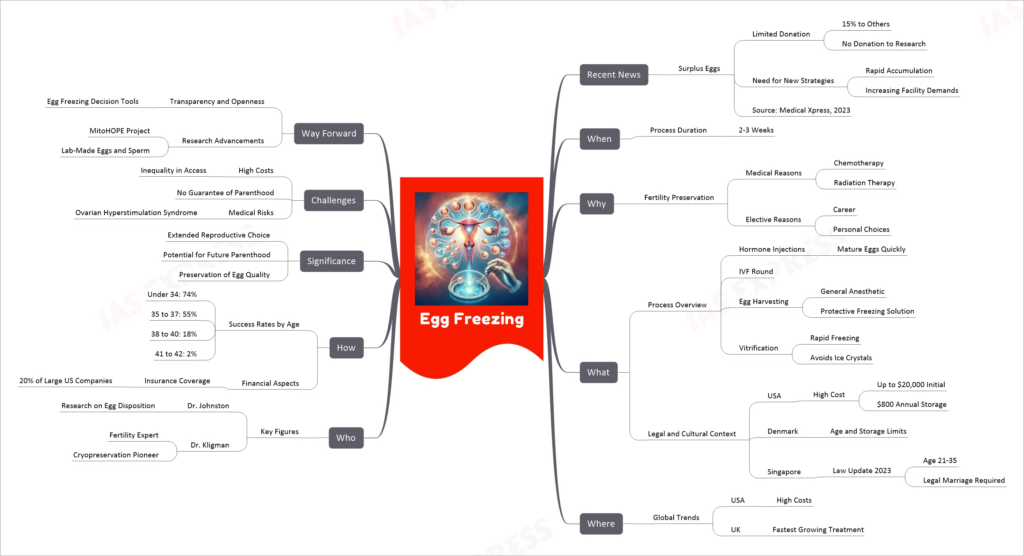
Egg freezing, also known as cryopreservation, is a process where a woman’s eggs are extracted, rapidly frozen, and stored for future use. This fertility preservation technique, developed initially for patients undergoing treatments like chemotherapy, has become more widely available and is now an option for women who wish to delay childbearing for various reasons, including career or personal choices. The process involves hormone injections to mature eggs, followed by an IVF round and the harvesting of eggs under anesthesia. Despite its rising popularity and technological advancements, egg freezing presents challenges such as high costs, unequal access, and no guaranteed success. Recent data shows success rates decrease with age, highlighting the importance of informed decision-making in this personal and complex choice.
If you like this post, please share your feedback in the comments section below so that we will upload more posts like this.
